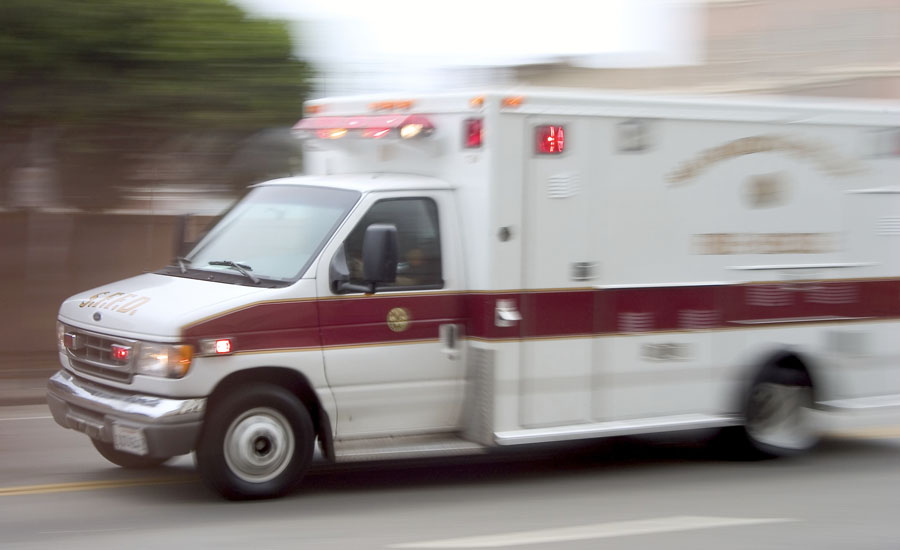The world’s largest online seller of goods tops the “Dirty Dozen” list of unsafe employers released by the National Council for Occupational Safety and Health’s (National COSH) today. The annual reveal is timed to coincide with Workers Memorial Week (April 22 – 29), which honors those who have been injured, suffered illnesses or lost their lives at work.
Amazon, a repeat Dirty Dozen employer, has had six worker fatalities at its facilities since 2018, all of whom were employees of other firms or contract workers, rather than full-time Amazon employees.
According to National COSH, recent investigations have uncovered:
- a high incidence of suicide attempts among Amazon workers
- workers urinating in bottles because they are afraid to take breaks
- workers left without resources or income after on-the-job injuries
Amazon posted $11.2 billion in profits in 2018 while paying no federal income tax. “Despite these vast resources, there is little evidence the company has made a significant effort to address worker complaints about stress, overwork and other conditions which can lead to illness, injuries and even fatalities,” said National COSH in a statement.
The rest of the Dirty Dozen list:
Atlantic Capes Fisheries (ACF) & BJ Services. According to National Cosh, the companies ignored numerous sexual harassment complaints. A statement from ACF disputes that, saying it reached a settlement in January with the U.S. Equal Employment Opportunity Commission (EEOC) and four women in a sexual harassment lawsuit stemming from claims that largely predated ACF's acquisition of a packing facility. "The workers alleged to have behaved inappropriately are no longer employed by either ACF or BJ’s," according to the company.
Bedrock Detroit - which pressured safety regulators to overlook hazards
Beiza Brothers Harvesting
Facebook and some of its contractors: Accenture, Cognizant, ProUnlimited and Tech Solutions
Genan
Integra Health Management, Inc.
Johns Hopkins Hospital
McDonald’s USA
Perdue Pharma and the opioid industry
Tooma Enterprises
XPO Logistics
In what may be a sign of the times, two of the employers on the list – McDonald’s and Atlantic Capes Fisheries & BJ Services - were singled out because of numerous worker complaints about sexual harassment on that job that included unwanted touching, inappropriate language and threats of sexual violence.
National COSH Co-Executive Director Marcy Goldstein-Gelb said the Dirty Dozen list is based on the severity of injuries, repeat citations by state and federal authorities and exposure to risk.
The numbers
According to the U.S. Bureau of Labor Statistics, 5,147 people died from workplace trauma in 2017 – a slight decrease from 5,190 deaths in 2016.
“But the overall trend is still heading in the wrong direction,” according to National COSH, which says job-related fatalities have increased by 11 percent since 2012, with 95,000 deaths from occupational illnesses due to long-term exposure in addition to more than 5,100 deaths from acute workplace trauma
“Those figures point to a need for more resources for OSHA, yet OSHA’s resources are shrinking,” said Goldstein-Gelb, who noted that “with just 875 inspectors to cover 9 million U.S. workplaces, “it would take OSHA 158 years to inspect every workplace in its jurisdiction.”
In the meantime, “workers continue to die on the job at tragic levels.”
Those at particular risk are Some workers are temp, “gig” or contract workers, especially Latinos, who comprise nearly a third of those killed at work. Goldstein-Gelb said Latino workers fear that if they speak up about unsafe conditions, they’ll lose their jobs.
Workers tell their stories
Some former employees of several of the companies shared their experiences during a press conference today. David Jamel-Williams, who worked for Amazon as a “picker”, described how he suffered an eye injury on the job when a chemical leaking from a box splashed into his eye. He immediately reported the incident to his manager, who instructed him to wash out the eye and get right back to work. After Jamel-Williams insisted on making an incident report, he was refused a copy of the report and pressured to sign a document saying he needed no medical treatment and that released Amazon of all liability.
“Amazon definitely cares more about the speed with which they are able to push out products than the health and welfare of employees,” he said. “Employees are pushed to the brink of exhaustion. Every second that you do is calculated. It’s a reality that many Amazon employees face every day.”
Former McDonald’s employee Barbara Johnson described how a supervisor repeatedly sexually harassed her. She was afraid that if she reported him, he would cut her hours. Instead, she requested a shift change, and got one – but only temporarily. The harassment resumed.
“The experience forced me to leave McDonalds,” said Johnson, “but that hasn’t stopped me from speaking up so that other workers don’t have to go through what I did.”
She said the fast food train should hold mandatory training for managers and other employees and create a safe space for employees to report harmful behavior behavior. She also recommended that McDonald’s employees unionize.
Former XPO Logistics employee Tasha Murrel said the Memphis company “has no respect for the living or the dead.” She watched a coworker fall to her death one day and was forced – along with co-workers – to work around the body until it was removed three hours later.
Murrell also attributed a miscarriage she suffered from being required to lift heavy boxes 14 or 16 hours a day in extreme heat.
“XPO Logistics has to do better because we are humans, not robots, and they have to treat us as such,” she said. “We give these companies our blood, sweat and tears every day.”
Lowes not on the list
Not on the Dirty Dozen list this year: Lowes. The home improvement giant made it off the list by agreeing to stop selling paint stripper that contained methylene chloride, a highly toxic chemical that has been blamed for more than 60 deaths nationwide. Lowe’s was the first major retailer to take action, and other major companies followed, including Home Depot, Sherwin Williams, Walmart and Menard’s.




